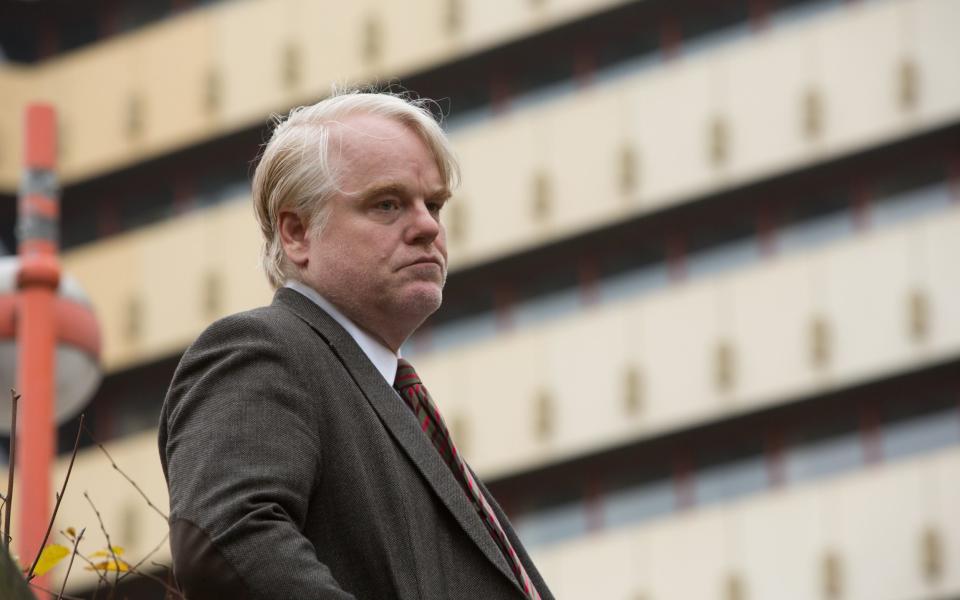The 11 movie moments that made Philip Seymour Hoffman great
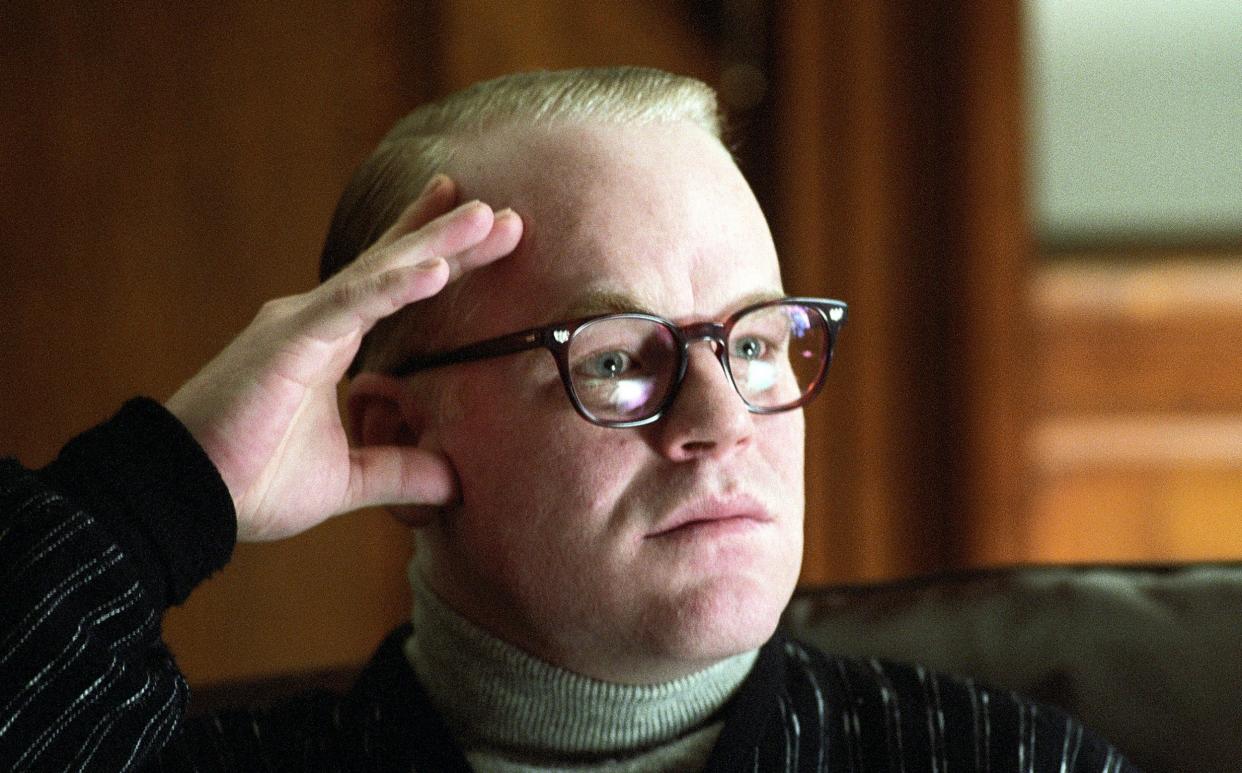
- Oops!Something went wrong.Please try again later.
- Oops!Something went wrong.Please try again later.
- Oops!Something went wrong.Please try again later.
Ten years after Philip Seymour Hoffman’s death, the loss of this phenomenal actor doesn’t get any less shattering. He’d be 56 by now, and his body of work could have doubled, or even tripled, by retirement age: the thought of all these lost performances can hardly fail to be a mournful one for any fan of cinema.
The legacy remains our consolation. Hoffman managed to appear in a remarkable number of the best American films to be made from the 1990s until his death, on February 2, 2014. Large and small, these were roles he earned with unmistakable talent and an even greater dedication to his craft. Many of the top-drawer directors of our time, from Anthony Minghella to Spike Lee, seized on opportunities to use him; Paul Thomas Anderson, who cast him five times, could hardly get enough of him.
Neither could we. The detail of his approach was everything – it’s hard to think of a single vague performance, or any instance of Hoffman merely repeating himself. The merest glimpse of one of the characters below, or one uttered line, is probably enough to single them out instantly from any of the rest. These are the deathless peaks, then, that made him the finest character actor of his generation.
1. Brilliant blubbing in Boogie Nights (1997)
His credits were already notable, and he’d made a strong impression as a preppy ne’er-do-well in Scent of a Woman (1992). But it was here, as a tragically awkward boom operator called Scotty, that Philip Seymour Hoffman was first, unmistakably, brilliant. Making a clumsy pass at Mark Wahlberg while showing off his new red Corvette, he tries to backtrack, blame it on the booze. But he knows he’s blown it. He gets in the driver’s seat, and repeats “I’m a f---ing idiot” eight times, blubbing as no one has ever blubbed before or since.
2. Collaborating with the Coens on The Big Lebowski (1998)
Hoffman’s role as Brandt, oleaginous manservant to the millionaire Jeffrey Lebowski, was tiny and tucked away. But goodness, he was funny, especially ushering Jeff Bridges past the Lebowski wall of honour, and smugly explaining his employer’s career highlights. From every constricted flap of his arms and half-laugh through gritted teeth, we get an anxious sycophancy coming off him in waves. This was Hoffman’s one and only collaboration with the Coens, but he made it count.
3. A born snob in The Talented Mr Ripley (1999)
Half charm, half poison, and rich enough to dispense with the former whenever he likes, Freddie Miles is every friend-of-a-friend you can’t stand. Hoffman made him a grotesquely detailed figure. From the moment he meets Tom Ripley, Freddie finds ways to make him squirm, probing this arriviste’s weak spots with the cruelty of a born snob. When Tom espies his new friends making hay below deck on their yacht, he’s asking for trouble. “Tommy, how’s the peeping?” Freddie demands with a ghastly, delighted smirk.
4. The quiet hero of Magnolia (1999)
With such a gallery of ogres already on his resume, it was a breath of fresh air to watch Hoffman play nice. His live-in male nurse, Phil Parma, is the most empathetic character in Magnolia’s whole downcast universe. Hoffman sketched a forlorn, sensitive figure whose loneliness makes him the film’s emotional centre, its quiet hero. Phoning in a grocery order, he adds Penthouse and Hustler, his face a picture of vulnerability. “Still want the peanut butter, bread and cigarettes?” comes the voice on the other end.
5. Advice for life in Almost Famous (2000)
Another late night phone call. If there’s one scene where Hoffman secured our loyalty for good, and also our love, it might be this one, where legendary rock critic Lester Bangs gives his very particular brand of rumpled life advice to a young protégé. He speaks of being uncool, and not good looking, but also of being smart. He talks about what art is, and how what matters in life is what you say when you’re not being cool. He tells his friend to “be honest, and unmerciful” – if there’s any mantra Hoffman might have followed in his own work, it’s that.
6. Oscar-winning magnificence in Capote (2005)
You could call the whole of Capote a Hoffman highlight – he’s hardly off-screen, and rarely less than magnificent. But Truman’s two-facedness is particularly well-caught at the party for his friend Harper Lee’s film premiere, where he can’t resist a touch of queeny malice under his breath. All around, To Kill a Mockingbird is being fêted, but Truman sits apart, wearily nursing a cocktail. As Harper walks away, we hear him delivering his last word on the matter, exhaling indifference: “I don’t see what the fuss is about.”
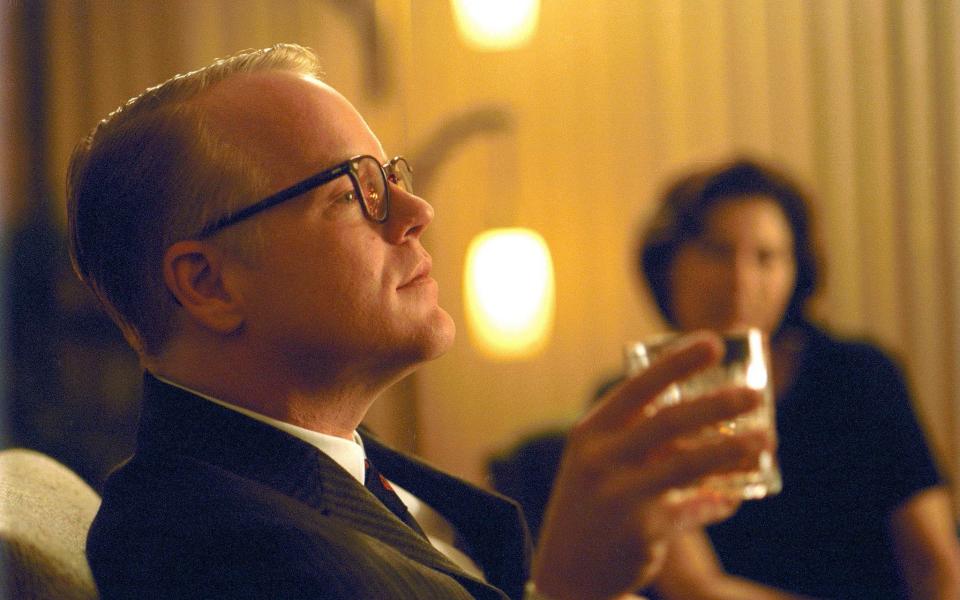
7. Baring all in Before the Devil Knows You’re Dead (2007)
The most unexpected sight of Hoffman in Sidney Lumet’s late-career gem is the very first: he’s completely naked, and taking Marisa Tomei from behind in an ordinary suburban bedroom. He’s also watching himself in the wall mirror. It gives us an immediate sense of Andy’s narcissism, his appetites, all that he covets. It’s realistic sex, grubby only by comparison to the fake, body-double kind. And it’s typical of Hoffman’s fearlessness in exposing his characters, shying away from nothing.
8. Showing off his nails in Doubt (2008)
Basketball practice with Father Brendan Flynn, who is affable, but might be a paedophile. “On another matter. I’ve noticed several of you guys got dirty nails. I don’t wanna see that. I’m not talking about the length of your nails, I’m talking about cleanliness. See, look at my nails. Right, they’re long. I like them a little long. But look at how clean they are. That makes it OK.” Hoffman walks around the whole group, his hand outstretched, showing off these talons. His trainers squeak on the floor. The last boy flinches, bending his whole body away, repelled.
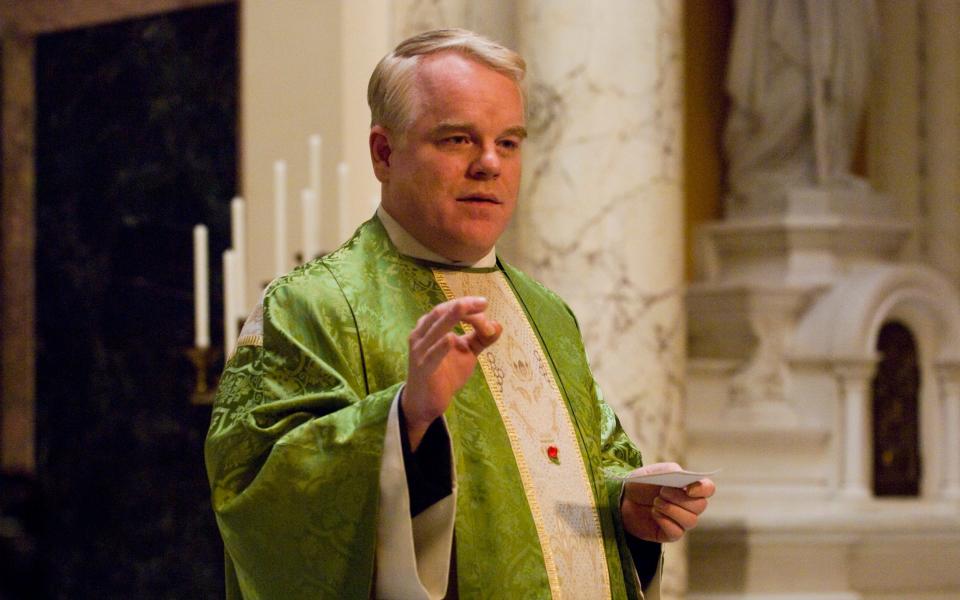
9. His greatest role in Synecdoche, New York (2008)
In time, Caden Cotard will be recognised as its star’s greatest ever role, but Charlie Kaufman’s shattering magnum opus, about a playwright’s entire life spent failing, failing better, failing some more, will be a hard one to watch for a little while. In one especially anguished scene, Caden’s grown-up daughter, Olive (Robin Wiegert), is on her deathbed, and makes him beg for a forgiveness she’s not even prepared to grant. We watch Caden submit to a profound emotional self-flagellation without even the reward of making things right.
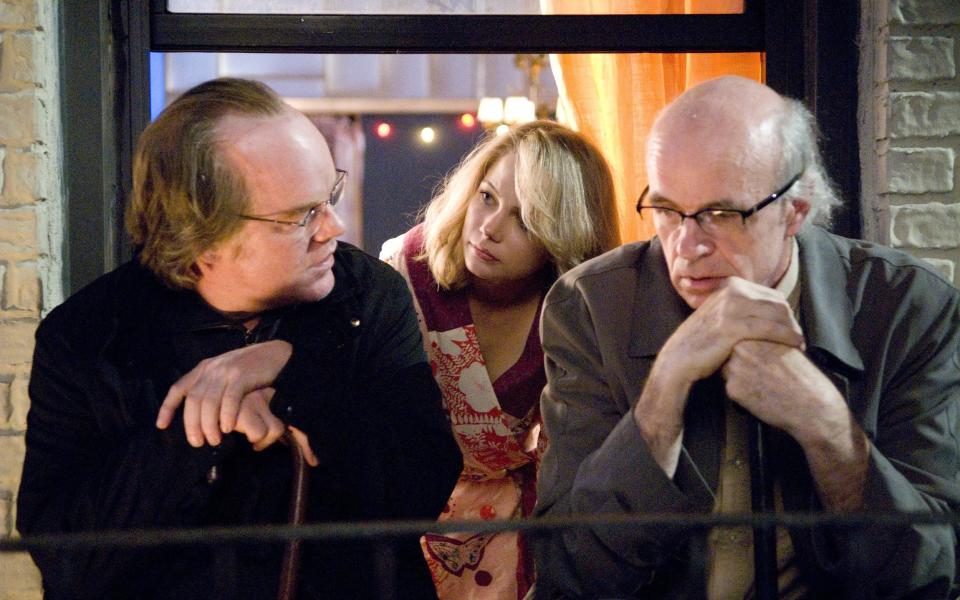
10. Stealing every scene in The Master (2012)
Two shocking monosyllables – “Pig f-ck” – explode from Hoffman’s Lancaster Dodd in the middle of a face-reddening screed, as he ringfences his ideology in front of a scoffing cynic called John Moore. It’s practically a Tourette’s outburst, but it does the job like a precision bomb: his opponent’s silenced. Hoffman controls the scene by losing control, just as Dodd does, and the crescendo of his fury overtakes the content of his words. It becomes a position based purely on rage. This centrepiece scene, like all the others, and frankly every scene in which Hoffman ever appeared, is his for the taking.
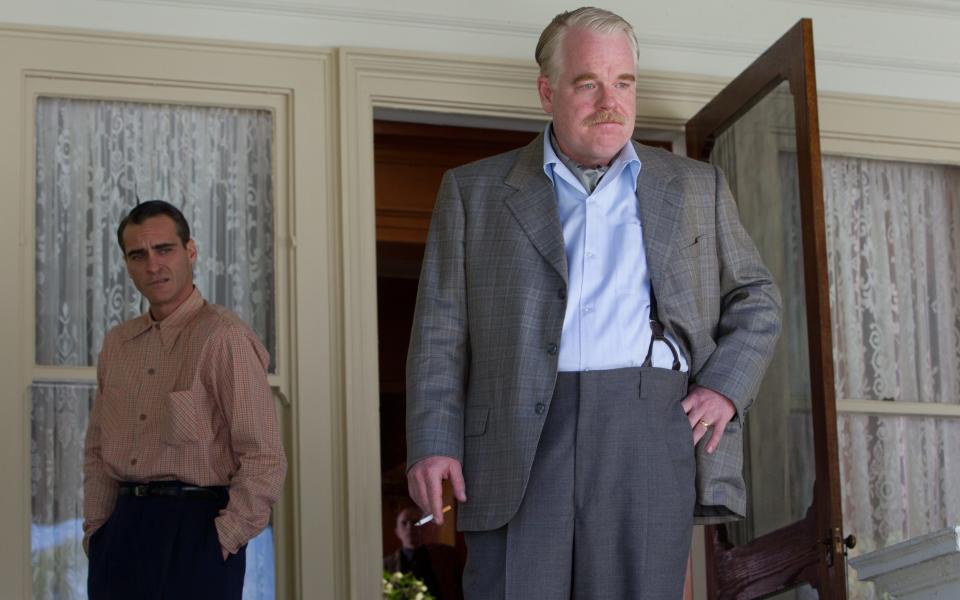
11. Making us miss him in A Most Wanted Man (2014)
This was the major posthumous performance that made us miss Hoffman most. In Anton Corbijn’s grippingly patient adaptation of John le Carré, Hoffman’s German spymaster, Günther Bachmann, is a stifled, almost ruinously intelligent and lonely being. He hulks, he shuffles, he measures his words with a waiting-game precision. Hoffman’s wheezing authority and lived-in fatigue rule the roost, making us keenly aware that Bachmann hasn’t just been around the block, but carried out fiendish recon on every corner. His only error – a mesmerising tragic flaw – is still relying on a certain degree of faith in handshakes.
